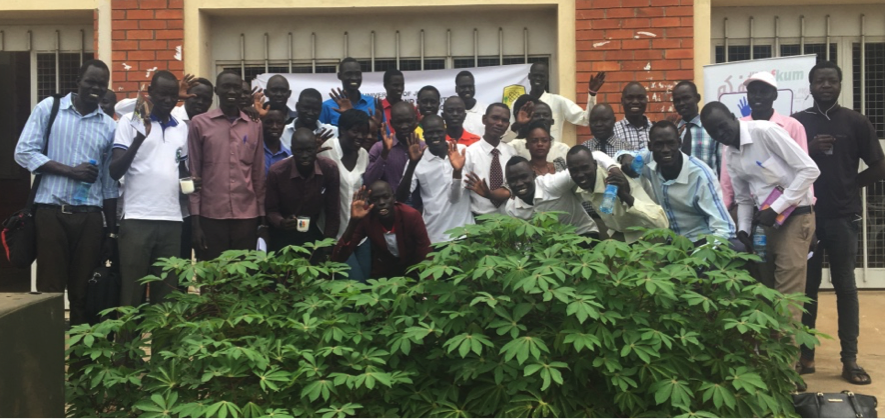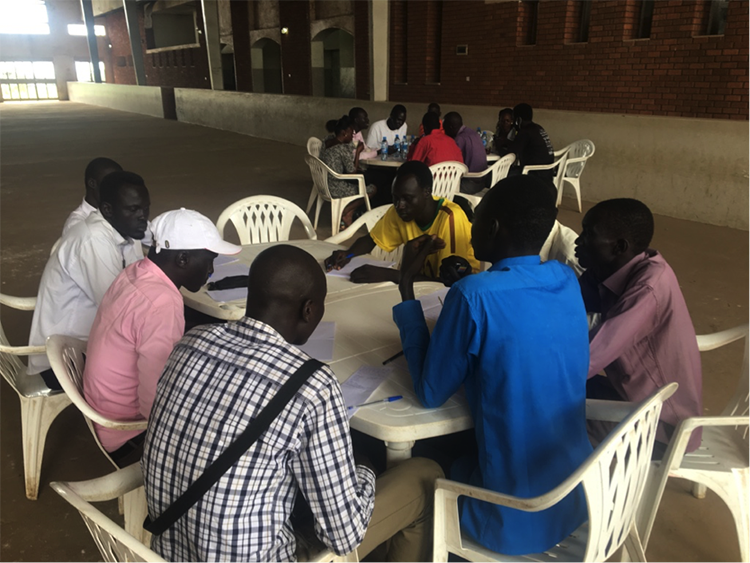
As part of its ongoing South Sudan Customary Authorities project, RVI, in coordination with staff and students at the University of Juba, organized an event which discussed the role of chiefs. The discussion centred around the screening of RVI’s film We Are Here for the Sake of the People. The role of Chiefs and Traditional Authorities is changing in South Sudan and the overall aim of the Customary Authorities project is to increase understanding of their changing roles, to amplify their voices, and to bring the subject as a basis for discussion amongst Chiefs themselves, and their constituents.
The event was held as part of the #KefKum? initiative’s Tea Talks. KefKum?—which means ‘how are you (all)?’ in Arabic—is a peacebuilding initiative driven by students of Media and Communication, in the College of Arts and Humanities at the University of Juba. The initiative cultivates a culture of hospitality, dialogue and mutual care. KefKum? has several dialogue platforms, one of which is Tea Talks, which brings together students from Juba University and beyond to conduct intentional dialogues over tea, coffee and hibiscus. The Tea Talk team serves the beverages to their peers, creating a relaxed environment to facilitate open, honest discussion, while promoting self-awareness and reciprocity.
The event brought together forty students to watch the film and to discuss key questions formulated by the University staff and the #KefKum team such as: Are chiefs relevant today in South Sudan? What are the roles they could play in the future in South Sudan?
 Chiefs in the film, and throughout RVI’s research on customary authorities, cite the youth as one of the main challenges to their traditional roles for a variety of reason, including the proliferation of small arms amongst young people in South Sudan. The event provided an opportunity for the students to discuss these views—and whether they should be counteracted—and to consider their own relationships with customary authorities in their own communities.
Chiefs in the film, and throughout RVI’s research on customary authorities, cite the youth as one of the main challenges to their traditional roles for a variety of reason, including the proliferation of small arms amongst young people in South Sudan. The event provided an opportunity for the students to discuss these views—and whether they should be counteracted—and to consider their own relationships with customary authorities in their own communities.
The overwhelming response from the students was that, in most cases, chiefs continue to have relevance in South Sudan although their authority has been undermined and they have lost many of their historical powers. The students emphasized the need to build closer relations between youth and customary authorities in future. The students of KefKum? wished to bring the spirit of dialogue to a wide range of interlocuters, including the chiefs themselves.


